Orangutan Caring Week 2024
Orangutan Caring Week is a worldwide event celebrated every November to raise awareness for the conservation and care of this great ape species.
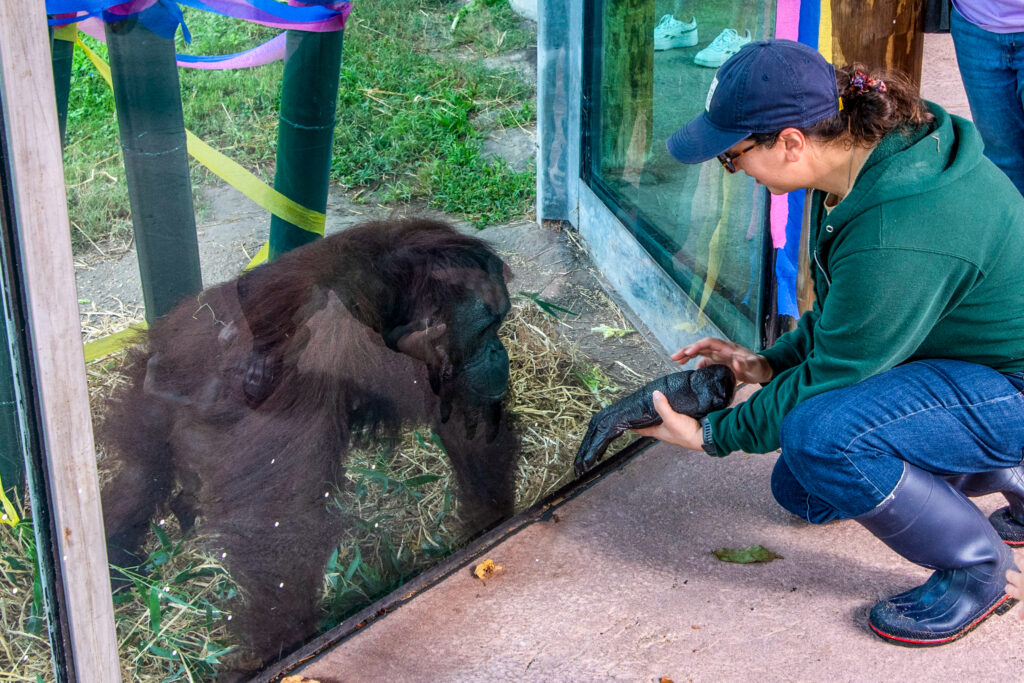
This year for Orangutan Caring Week, our Asia: Trail of the Tiger keeper, Rachael Pipitone, shares fascinating facts about the orangutans that call the Virginia Zoo home:
What is an orangutan? Orangutans are one of the four great apes, and the only ones who live outside of Africa. The word “orangutan” translates to “person of the forest”. On its own, “orang” translates to “person”, but we do not use this word as an abbreviation because it can be disrespectful to the people native to where orangutans live. Where do orangutans live? They live in Indonesia, specifically in the forests of Sumatra or Borneo. Orangutans are arboreal, which means they are tree dwellers.
Here at the Virginia Zoo, we have 5 orangutans that live in two separate groups. In the wild orangutans are considered solitary, yet social, so they don’t like to live in big family groups like other great apes. We have an older group with a female named Pepper, 44 years old, and a male named Schnitz, 42 years old. Our other group is our younger family with a female named Dara, 25 years old, a male named Solaris, 21 years old, and their infant female named Poppy who was born on June 29, 2024. Usually in the morning you can see our younger family group in their big habitat yard, weather permitting, and in the afternoon, we switch the groups so Schnitz and Pepper can have some fresh air if they choose. When keepers work with the orangutans, it’s all about building trusting relationships and giving them as much choice as possible. Schnitz and Pepper tend to prefer the inside area where it is climate controlled and less noisy.
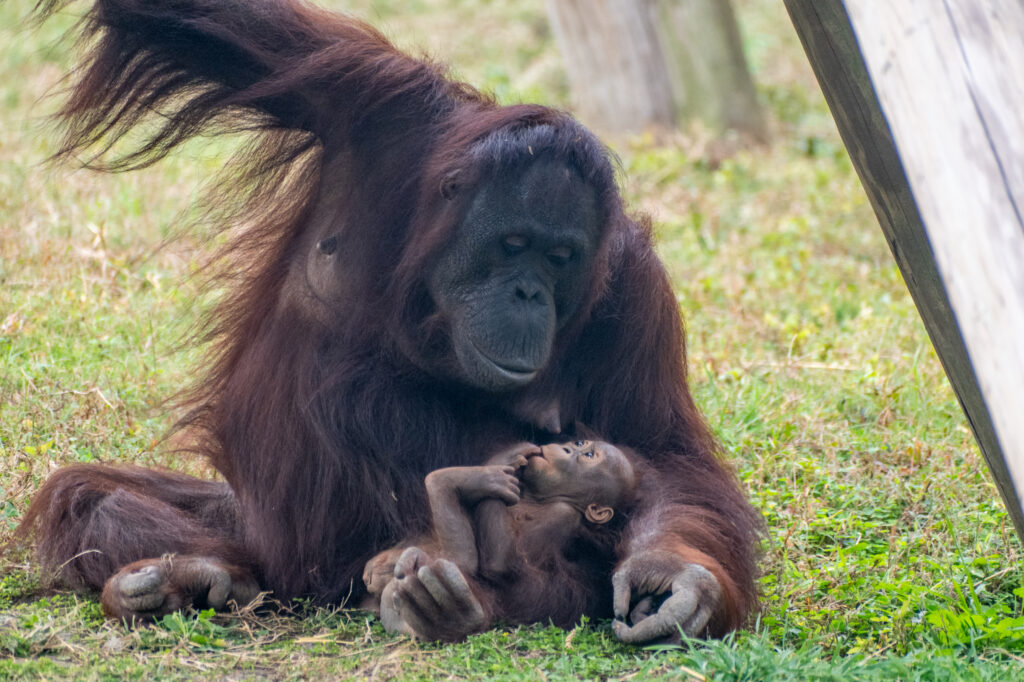
Orangutans look and act similar to humans in many ways, but they definitely speak their own language and have other ways of communicating. “Anthropomorphize” is a fancy term that means to put human characteristics onto something else, like orangutans, usually because we want to make a connection. Concerned Zoo patrons may think the orangutans “look sad”, but this is just because of our different styles of communication. When we approach another human, we usually smile as a greeting. When other primates show their teeth, like we do while smiling, they are actually baring their teeth to show how much damage those chompers can do. When we talk to a fellow human, we usually face them and make eye contact. If a great ape does those same behaviors, they can be sizing up an opponent and squaring their body up for a fight! If you were about to get in a fight, would you turn your back to your opponent? Probably not, that is a very vulnerable stance to take. When people see the apes looking “sad” they are usually trying to show you respect by looking up (not a direct stare), over their shoulder (making sure their body is saying I don’t want to fight), and have their mouth closed (not baring their teeth). The same behavior people may be concerned about is actually our apes saying, “Hi, who are you? You look cool, but I don’t want to threaten or fight you. Wanna hang out?” They have lots of choice in their habitat to walk away if someone is being bothersome, like banging on the glass, so when they stay near you, they are choosing to.
How can you tell orangutans apart? As infants, juveniles, and adolescents, male and female orangutans mostly look the same. As they mature, we start to see some differences. Males can be about double the size of the females. When you see an orangutan with cheek-pads on the sides of their face, those are called flanges (pronounced flan-ges). Part of growing into a flanged male is having long dreadlocks, flanges, and a throat sac. All these new features are to help males look bigger and less approachable to other males or threats, and to make them look bigger and more attractive to females.
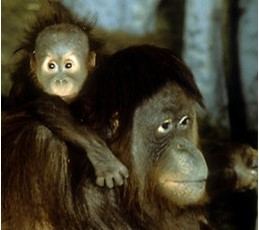
Schnitz as a baby
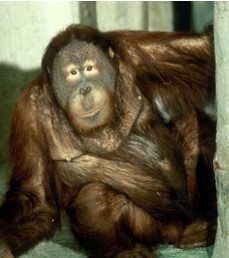
Schnitz as a adolescent
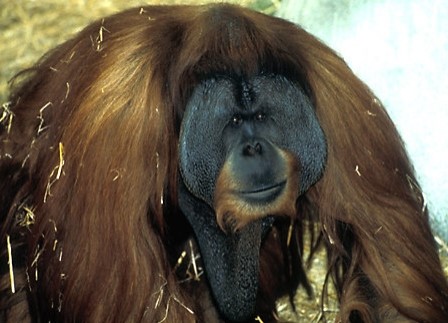
Schnitz as an adult
*Photos courtesy of Chicago Zoological Society
What is one of the biggest threats to orangutans? Loss of habitat through logging and forest fires. The forest fires are associated with palm oil plantations, which use fires to clear land for their crops. Although it could be tempting to boycott all palm oil, it is more effective to find items with the RSPO label. Palm oil is found in a lot of products you probably already use including cleaning products, cosmetics, and food. RSPO stands for the Roundtable of Sustainable Palm Oil. Buying from companies that support RSPO means these companies buy from farms that agree to use the same land for multiple years for their palm crops, instead of cutting down or burning rainforest every year. There is even an app you can download to see which companies support this endeavor: PalmOil Scan Mobile App – CMZoo.
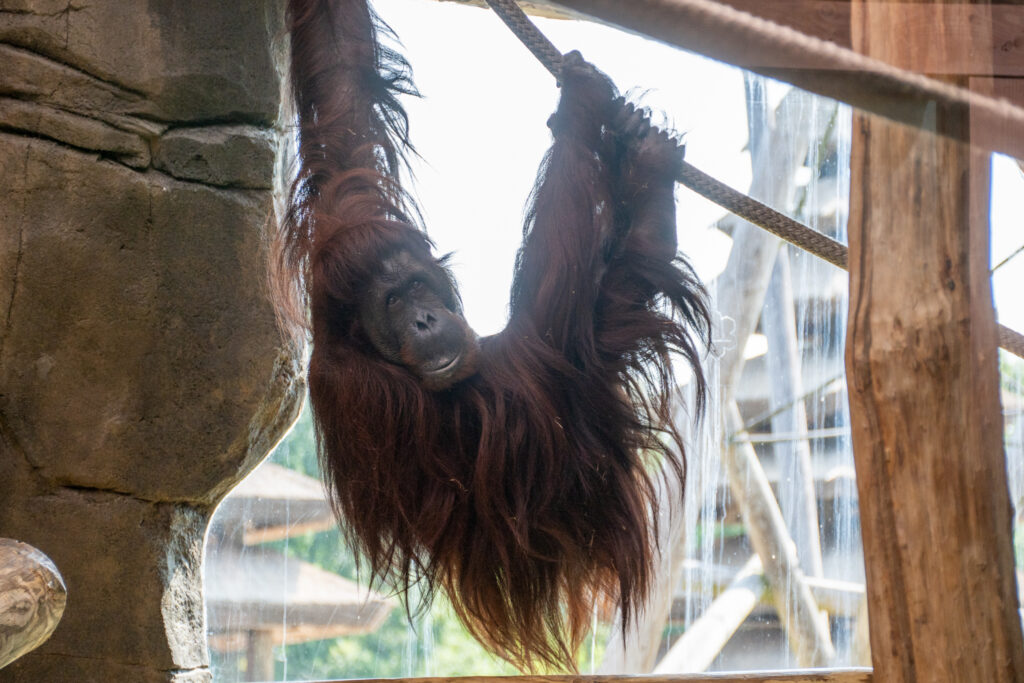
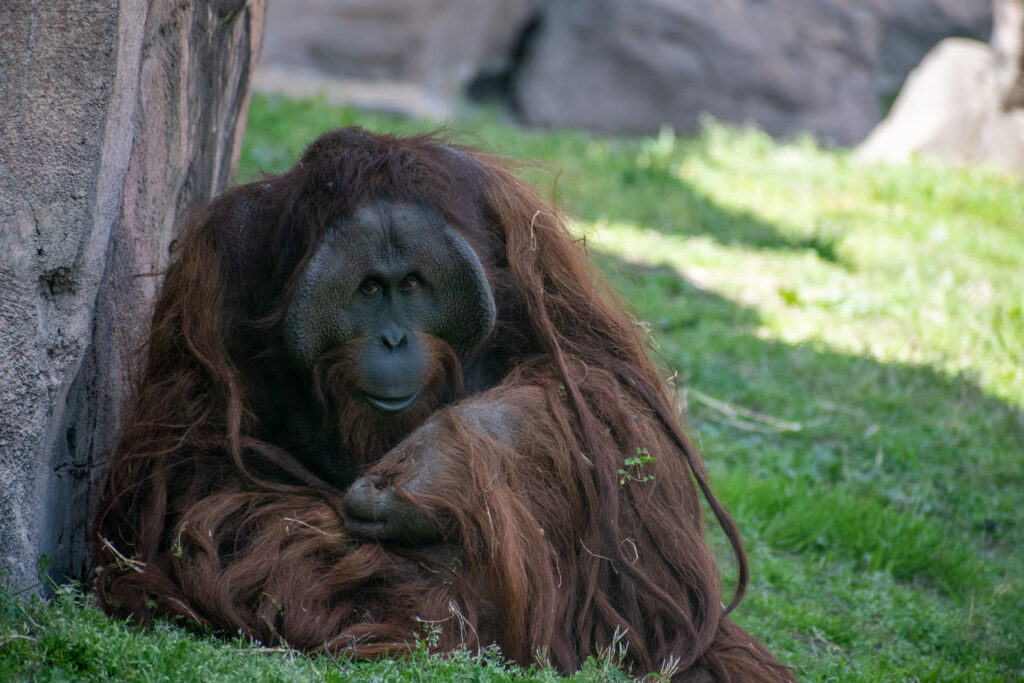
Supporting the Virginia Zoo, which helps educate about orangutan conservation is something we and our apes thank you for! If our apes could share some time and information with you, I’m sure Schnitz, our shy and calculating male, would probably help you search the web to see which Halloween candy is RSPO-certified this year. Pepper, our quick-thinking female, would explain which of her favorite trees in the rainforest she would love to eat, both bark and leaves. Dara, our nurturing mother, would love to show you and her ever-growing infant how to find the best fruits, especially the ones high up in the trees near their nest. Orangutans learn best by observing their mothers! Solaris would charismatically show you how to make a tool to open a hard to acquire fruit like durian or palm, since his large hands aren’t always nimble.
We hope that everyone will visit the Zoo to meet our outstanding orangutans!